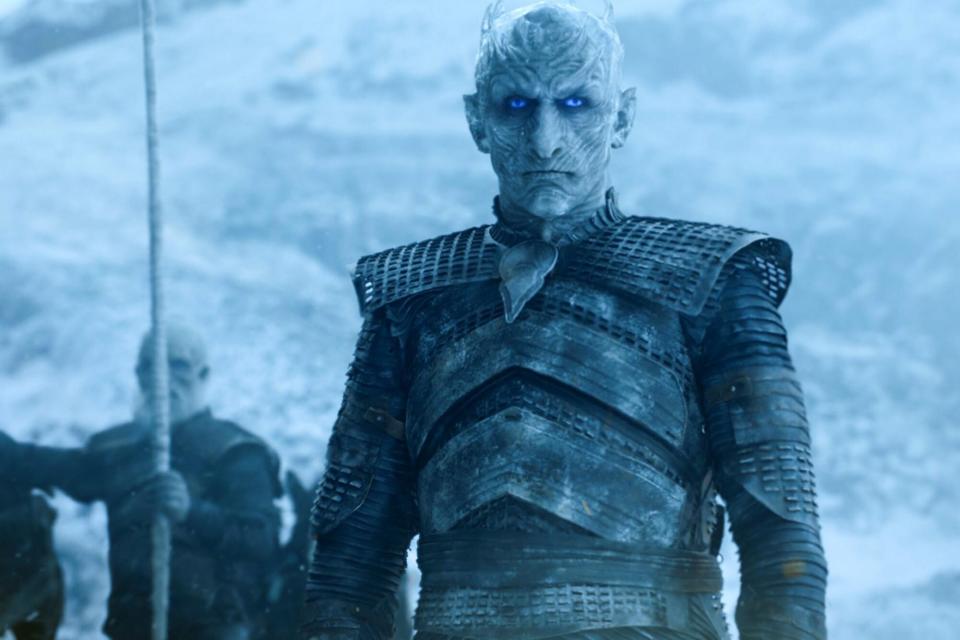HBO reportedly spent 'over $30 million' on failed Game of Thrones spin-off pilot starring Naomi Watts

We finally know more about HBO's scrapped Game of Thrones spin-off. According to the new book Tinderbox: HBO's Ruthless Pursuit of New Frontiers, by James Andrew Miller, the network spent more than $30 million on the pilot for a fantasy prequel series starring Naomi Watts that ultimately was not picked up to series.
Though it never officially had a title, the first Game of Thrones spin-off developed by the network had some big names attached — in addition to Watts, the show would also have featured S.J. Clarkson as director and Jane Goldman as showrunner — and an interesting premise. This prequel would have been set thousands of years before Game of Thrones, and would have involved the distant ancestors of noble families like the Starks and Lannisters — but it would not have included dragons, since it would have predated House Targaryen's arrival in Westeros. Author George R.R. Martin had suggested The Long Night as a possible title, but that phrase was instead used as the episode title for the final season's epic battle at Winterfell.

HBO The Night King in 'Game of Thrones'
On the same day news broke that the series was not moving forward, HBO confirmed that it was giving a full series order to House of the Dragon, a prequel set much closer in time to Game of Thrones about the dragon-filled civil war in House Targaryen. Unlike the Watts show, House of the Dragon has direct source material in the form of Martin's 2018 book Fire & Blood. But according to former WarnerMedia chairman Bob Greenblatt in Tinderbox, that wasn't the only reason HBO chose the latter over the former.
"They had spent over $30 million on a Game of Thrones prequel pilot when I got there," Greenblatt says in Miller's book. "And when I saw a cut of it in a few months after I arrived, I said to [HBO chief content officer] Casey [Bloys], 'this just doesn't work and I don't think it delivers on the premise of the original series.' And he didn't disagree, which actually was a relief. So we unfortunately decided to pull the plug on it. There was enormous pressure to get it right and I don't think it would have worked."
HBO declined to comment on this story.
One purported reason House of the Dragon was ordered directly to series was to avoid another costly failed pilot, a decision Greenblatt takes credit for in the book: "I'm the one who encouraged Casey to green-light it to series. I said, 'let's not risk $30 million on a pilot.' You can't spend $30 million on a pilot and then not pick it up. So I said, 'let's not make a pilot. Let's get a great series that we feel good about, and just make it. Or not.' They made the first pilot because they were protecting their own downside and protecting that brand, which I understand, but it was critical that we somehow continue that franchise and move quickly, which meant getting the series into production asap. That's always a nail-biter, but I think the new show that is coming will be incredible."
Westeros fans should rest assured that House of the Dragon is not necessarily the be-all and end-all of Game of Thrones spin-offs. Though the dramatization of the Dance of the Dragons is currently the only one greenlit, as recently as this past March the network was reportedly developing shows about the seafarer Corlys Velaryon (a.k.a the Sea Snake, a character who will be played by Steve Toussaint in House of the Dragon, which is set in the later years of his life), the legendary warrior Princess Nymeria (namesake of Arya Stark's direwolf), and the poor residents of Flea Bottom, among others.
Related content:

 Yahoo Movies
Yahoo Movies 
